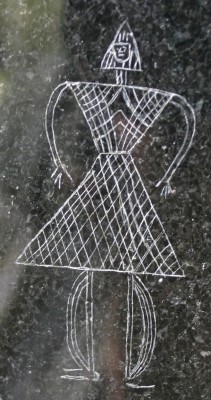Living the primitive life is good for the soul. I have no electronic contact to the rest of the world but close contact to nature. I have no power, no running water, no telephone, radio or refrigerator. The cabin is not insulated and my cell phone does not work out here. I only need to think about the basic needs: eat, drink, wash, sleep. I can focus on enjoying nature to the full and not paying civilisation with all its complications a thought. This is how I like it.
One morning I canoe out to a beaver lodge that lies east of my cabin. It takes about 20 minutes to get there if there is no breeze. I paddle around the lodge for a bit before starting to head home and almost sail headlong into the beaver that is returning home after a morning of foraging.
On another morning on the lake I spy a painted turtle sunning itself on a rock. It slips into the water when I approach. It’s kind of fun to think that when I swim in the lake I am sharing water space with turtles and beavers.
One day I drive out to Kejimkujik National Park. “Kejimkujik” is a Mi’kmaq name meaning “tired muscles”. (You know you are a real Canadian when you take pronouncing these First Nation names in your stride.)
Kejimkujik is one of my favourite places. You can hike and canoe for hours or days. You can camp in the back country, or spend a day swimming, or touring on a mountain bike. You can enjoy woods, lakes, bogs and the beautiful Mersey River.
The park is also a national historic site that includes the traditional canoe routes between the Bay of Fundy and the Atlantic Ocean. These waters were plied by the native people for thousands of years. In the park you can see petroglyphs – drawings etched in soft rock – depicting Mi’kmaq life in the 18th and 19th centuries.















